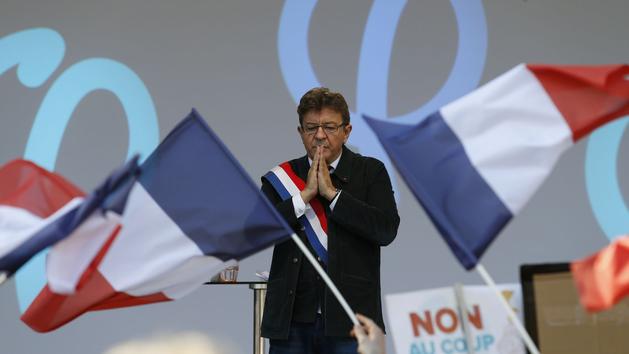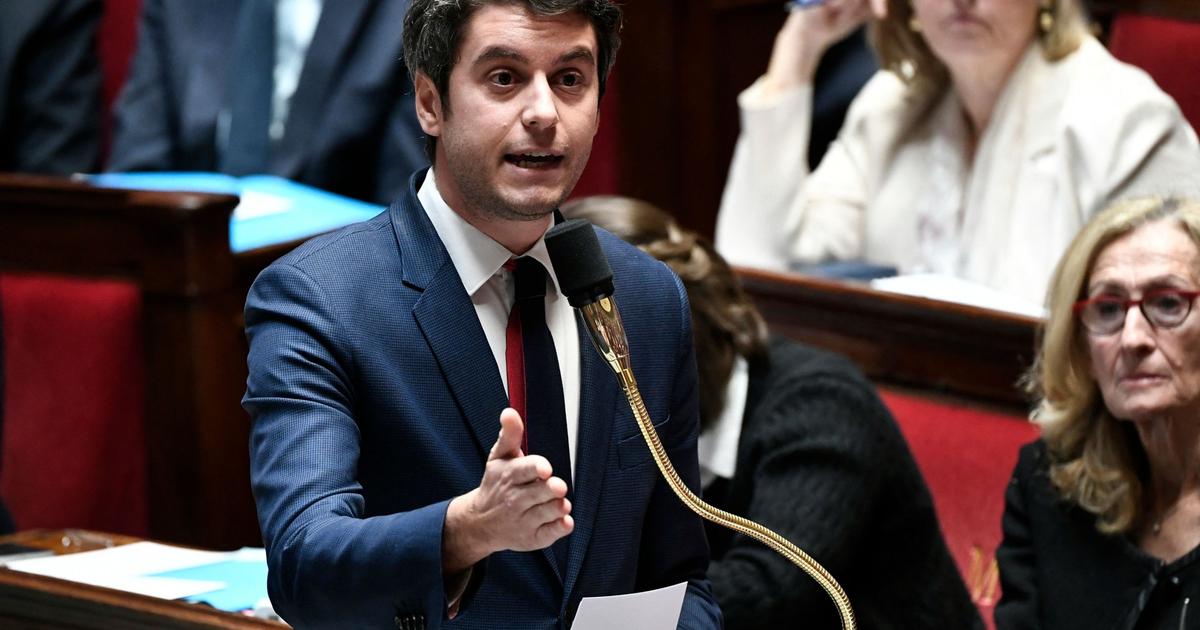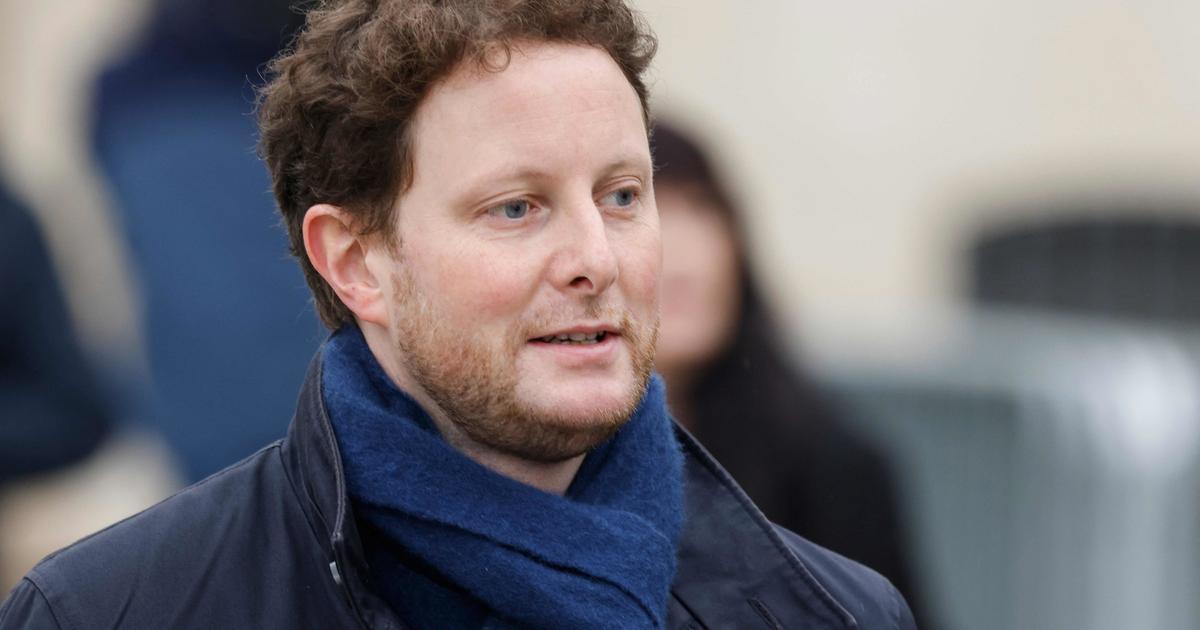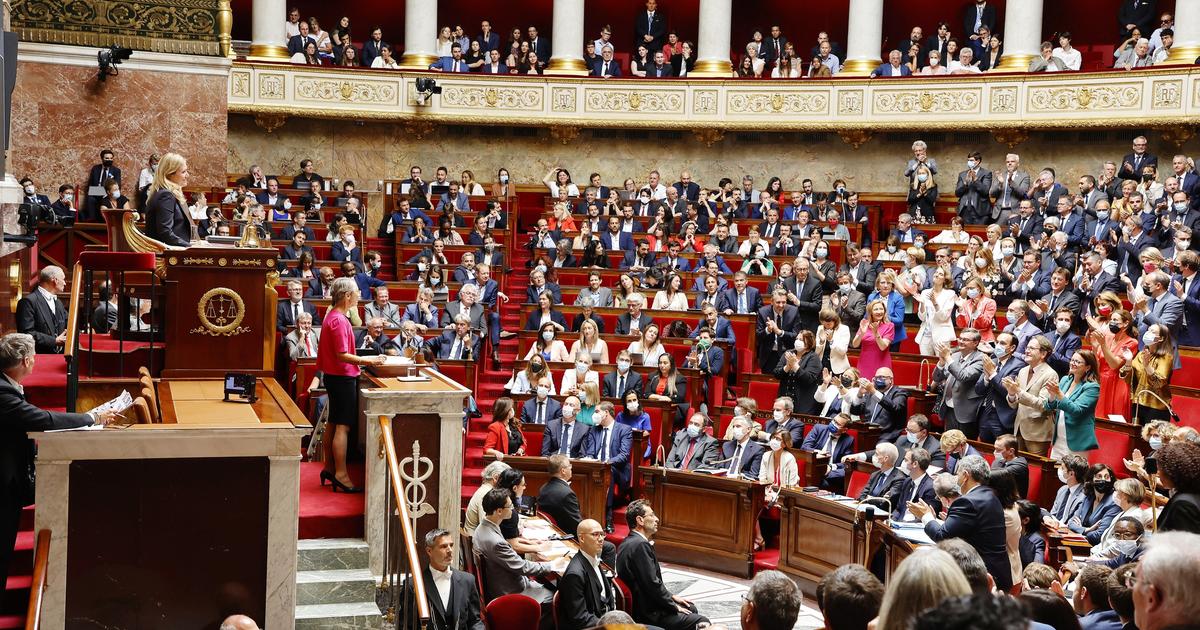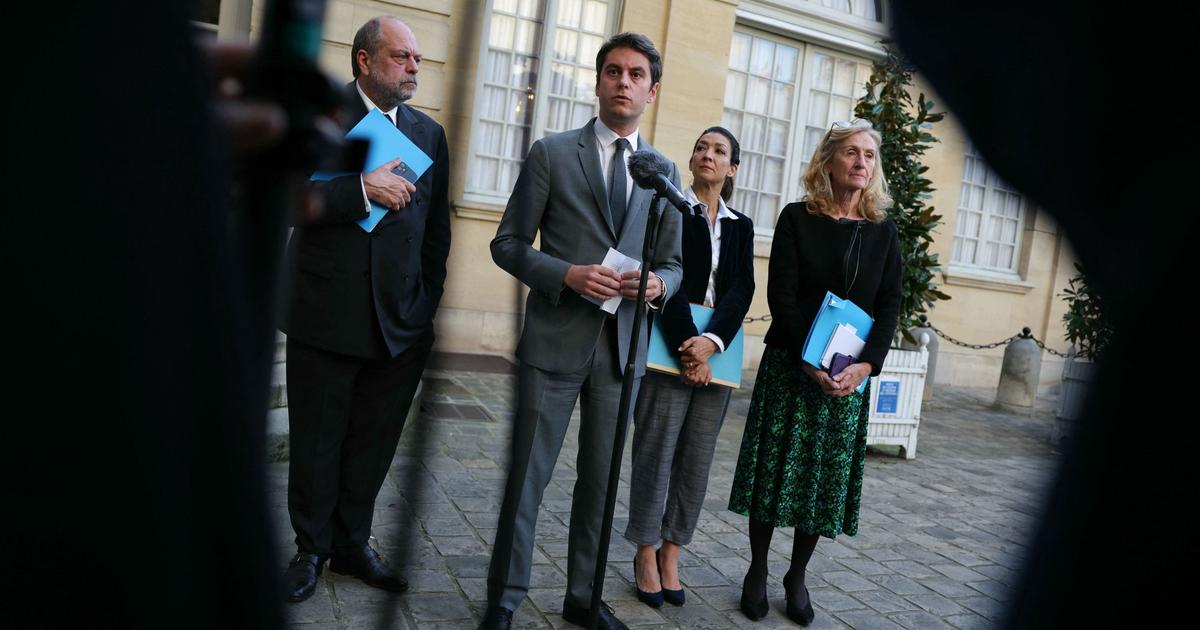Hadrien Mathoux is a political journalist at Marianne. He is responsible for monitoring the left and in particular La France insoumise. He publishes
Mélenchon: la chute, Comment La France insoumise s'assondrée
, published by Le Rocher.
FIGAROVOX.
- Your book is called "Mélenchon: la chute".
However, before we get to this point, let's see what made up its peak.
In 2017, Jean-Luc Mélenchon climbed to fourth place in the presidential election, with 19.6% of the votes cast.
What do you think has been its success?
Hadrien MATHOUX.
-
We must take the measure of the feat that Jean-Luc Mélenchon achieved in 2017: unite more than seven million votes by defending such a radical program, which moreover by having before him a candidate from the wing left of the Socialist Party in the person of Benoît Hamon, constitutes a masterstroke.
It is explained by the combination of several factors.
First of all, the personal qualities specific to Jean-Luc Mélenchon, his charisma, his talent as a speaker during speeches and debates, the effectiveness of his posture as a peaceful teacher, his ability to embody the defense of popular dignity. .
Then, the profitable choice of a populist strategy, which was far from being limited to singing the Marseillaise and reintroducing tricolor flags in
meetings
;
during the campaign, Jean-Luc Mélenchon sent out all the referents of cultural leftism to adopt a transversal line combining socialism, patriotism and republicanism.
Finally, if the Insoumis did not present himself as the candidate of the left during the last presidential election, he in fact occupied this role in the eyes of the electorate, in particular to the detriment of Benoît Hamon.
This mechanically led to the rallying of a large fraction of the "left-wing people" on his name.
This ambiguity between a populist strategy and the incarnation of the left is probably at the origin of the procrastination of rebellious France since 2017. But at the time, it produced an alignment of the planets favorable to Jean-Luc Mélenchon, who l 'has put into orbit to become the main opponent of Emmanuel Macron.
During the European elections, Jean-Luc Mélenchon had abandoned his populist line to join the union of the left, defended by some of the rebellious elected officials.
In your opinion, was this turnaround a strategic error?
It seems to me that this choice, made by the Insoumis at the turn of 2018, explains a good part of the difficulties of the movement.
Jean-Luc Mélenchon's reasoning was tactical: considering that Emmanuel Macron now embodied the right, he sought to establish his supremacy on the left by seeking in particular to "finish" the Socialist Party.
This therefore resulted in a posture, never really assumed, consisting in seducing the voters who, according to some rebels, had missed Mélenchon in 2017: the inhabitants of the metropolises, of the center-left, those who are colloquially called the "sores" , deemed to be over-mobilized during the European elections compared to the popular categories.
Instead of cultivating their specificity, even if it means going further by questioning certain markers of the left, the Insoumis strove to look more like the PS or the environmentalists.
To please this electorate, for whom the “left” referent is an identity marker (unlike a large majority of the population), the rebels have adopted a series of turning points, both small and large: a clear softening of sovereignty which had marked the presidential campaign, resounding defense of migrants, return in force of a leftist aesthetic (highlighting "struggles" for "minorities", culture of agit-prop ', inclusive writing) ... The choice of Manon Aubry as head of the list for the Europeans symbolized this turning point.
By opting for this strategy, the rebels have pleased their militant base.
But in my opinion, they broke the dynamic of 2017: instead of cultivating their specificity, even if it meant going further by questioning certain markers of the left, they tried to look more like the PS or the environmentalists.
In doing so, the Insoumis found themselves neck and neck with several other parties, struggling to conquer a tiny segment of the electorate who, if their opinions are very well represented in the media and the cultural world, do not weigh heavily. much across the country.
In addition, this choice of a return to the shackles of the left has led to strong internal tensions and led to the purging of certain discontented executives.
You note a more historical cleavage within rebellious France, between a tradition of "first left", Jacobin and sovereignist and a form of radical "second left", which sees politics more from the angle of "struggles" and social movements.
Should we see in this cohabitation the origin of evil?
Originally, it was the strength of rebellious France: the movement has succeeded in bringing together personalities from very different horizons, linked to each other by adhering to the “L'Avenir en commun” program and rallying to the personality of Jean-Luc Mélenchon.
For the latter, cohabitation posed few problems insofar as the highly centralized form of rebellious France gave it undisputed leadership over the structure without having to get lost in picrocholine battles.
I would add that the injunctions to ideological unity within parties of national scope are futile: to win the votes of a majority of French people, it is necessary to persuade people who do not agree on everything.
Internal contradictions are inevitable in a political party that aspires to be something other than a small group;
what does not forgive is the disconnection with society.
Nevertheless, this diversity gradually turned into incompatibility to coexist after 2017. Very suited to "hot" periods such as that of the presidential election, the "gaseous" structure of rebellious France shows many more weaknesses during periods cold: it creates frustrations and disagreements, which are not resolved by voting in the absence of internal democracy, but often by media statements aimed at winning the support of the “keystone”, Jean- Luc Mélenchon.
Finally, we must not install an artificial symmetry between the two ideological families that coexist among the rebels.
The Jacobin and sovereignist tradition, which largely supported the populist strategy in 2017, is well represented in the close entourage of Jean-Luc Mélenchon;
aspiring to govern the country, it has a certain echo in the French people.
As for the fringe pejoratively described as “leftist”, very present in the militant base and among certain second-rank executives, it flourishes more in protest and is not intended to be in the electoral majority.
Its rise in rebellious France coincided with the decline of the movement.
Internal contradictions are inevitable in a political party that aspires to be something other than a small group;
what does not forgive is the disconnection with society.
While racialist theses seem to find an echo in an intellectual and media sphere, how do you explain that they undermined the movement of Jean-Luc Mélenchon?
It is necessary to analyze with finesse what happened within rebellious France: to decree that the rebels have "become Islamo-leftists" makes no sense.
Simply, by deciding to turn to a strategy favoring the left over the people, and due to the influence of a sphere of elected officials and activists, Jean-Luc Mélenchon and his relatives had to automatically bend the intransigence of their secular positions, considering that this was a good way to "bring" progressively all the rebels towards republican theses.
In fact, it is rather the opposite which happened: activists and executives attached to secularism were largely ejected from the movement, while those who accused them of "racism" and "Islamophobia" in defending communitarianism enjoyed a disturbing leniency.
Rather than denouncing the Islamist threat, the norm has gradually become to elude, or even seek to divert attention, by evoking institutional issues of secularism such as the Concordat in Alsace-Moselle.
Personalities belonging to the decolonial movement are now welcome to summer universities in rebellious France, or even on the movement's lists - see the case of Madjid Messaoudene in Saint-Denis.
And we must of course mention the participation in the march against Islamophobia of November 10, 2019, a demonstration initiated by the CCIF, which openly defends communitarianism and belongs to the movement of the Muslim Brotherhood.
Jean-Luc Mélenchon, who nonetheless has a solid record of secularism, recently qualified President Macron's intervention on Islamist separatism as a
"speech against Muslims"
, and continues to defend
" the second religion of the country ”
, that is to say Islam.
Jean-Luc Mélenchon, who nonetheless has a solid record of secularism, recently qualified President Macron's intervention on Islamist separatism as a "speech against Muslims", and continues to defend " the second religion of the country ”, that is to say Islam.
The turning point is therefore clear.
It illustrates a striking phenomenon, which I sought to highlight in my book: the capacity of left movements to be subverted by small microcosms from a progressive petty bourgeoisie.
This relatively withdrawn sociological universe forms the main part of the militant base and the executives of rebellious France.
He weighs little in the opinion of all French people, but his speech is overrepresented and overheard in all political parties and leftist associations.
The most spectacular illustration of this gentrification of the left is the Socialist Party's turn towards a “Terra Nova” strategy of seducing minorities to the detriment of the popular classes.
The rebellious France, which was notably formed in reaction to this process, is obviously not there.
But his abandonment of a firm discourse on secularism stems in part from the influence of this
“left Brahmin”
, to use Thomas Piketty's words.
France rebellious did not succeed in capturing the movement of yellow vests, is it precisely because the social line was not sufficiently marked or because the rebels were "incapable of embodying the idea of nation", for use the words of Emmanuel Todd?
I do not know if the yellow vests were "recoverable", given their radical refusal of any political representation and their mistrust of the constituted bodies.
What is certain is that their emergence seemed to validate all of Jean-Luc Mélenchon's theses on the subject of the “citizen revolution”, social rather than identity.
The concordance between the first lists of proposals of the yellow vests and the program "The future in common" was also striking.
But the yellow vests arrived at the wrong time for the rebels: their eruption coincided with the turn towards a strategy of union of the left and a return to traditional referents.
The tricolor flags of the 2017 campaign would undoubtedly have been more effective than the inclusive writing leaflets of 2018 in convincing the yellow vests ... Paradoxically, the Insubordinates still managed to have an influence, by setting up a vast organization to invest the roundabouts and divert the movement of the National Rally.
But one can wonder if the marginalization of the yellow vests is not the result of their gradual transformation into an extreme left movement in the eyes of the public.
The two remarks are therefore correct: LFI continued to tackle the social question, but in a more traditional leftist mode and by giving more room to peripheral “struggles”;
as for the incarnation of the idea of nation, it was reduced to the minimum portion while it was a pillar of the presidential campaign in 2017. These two trends did not help at the time of the emergence of the Vests yellow.
In the last municipal elections, the EELV party took the head of many metropolises.
In his book, “Where is happiness?”, Published in 2019, François Ruffin already called for “an ecological popular front”, a rapprochement between “reds and greens” with ecology as a link.
Will Jean-Luc Mélenchon play this card in view of the 2022 presidential election?
Can a dynamic be reconstituted around this question, according to you?
Jean-Luc Mélenchon has not suddenly discovered ecology in recent months.
His “green” turning point dates from 2012, and as often with him, it is a thoughtful shift, deep and heavy with consequences.
Its program in 2017 went very far from an ecological point of view.
In terms of political culture, the Insoumis remain far too Jacobins for the Greens, who are part of a libertarian and Europeanist heritage.
Regarding the more “political” question of a rapprochement between Insoumis and ecologists in 2022, Jean-Luc Mélenchon would dream of being at the head of a “popular federation” bringing together all of the left behind his panache.
But it is a utopia: his personality divides enormously, and in terms of political culture, the rebels remain far too Jacobins for the Greens, who are part of a libertarian and Europeanist heritage.
Mélenchon will of course seek to feed the cleavage that exists at EELV between the left wing embodied by Eric Piolle and the more centrist sensitivity of Yannick Jadot, but the prospect of an alliance that would benefit Jean-Luc Mélenchon seems illusory to me.
More broadly, does the left have a future in France, when it is retreating everywhere in Europe?
It all depends on what we put behind this evocative but very vague term “left”.
If it is a question of denoting opposition to the ravages committed by neoliberal capitalism, and the need to build a more just society by relying on solidarity and public services to allow emancipation, then the left, which played a historic role for these fights through the workers and republican movement, seems to me to have interesting prospects, as shown by the strong support for the yellow vests at their advent.
Whatever one may say, the social question has not evaporated in favor of cultural and identity debates, in France as elsewhere.
If, on the other hand, by "left" we mean a moralizing frame of mind which would defend in all circumstances political correctness, cultural relativism, hatred of the idea of nation, intellectual sectarianism, in short, latent contempt. popular classes and their desires, so indeed, this current does not seem to have a great future.
A recent Ifop poll shows that even supported by an illusory "union of the left", Jean-Luc Mélenchon would gather only 15% of the votes in the first round, and that a good part of the environmentalists and socialists votes would be transferred to other candidates.
This can lead to questioning the relevance of the use of "the left" as a political category: is it still adapted to the new cleavages which structure society?
In any case, if it wishes to survive, the left will not escape serious examination of conscience.
It will have to get out of its identity hypersensitivity, fight its gentrification, and learn to distinguish its principles from its fetishes.

